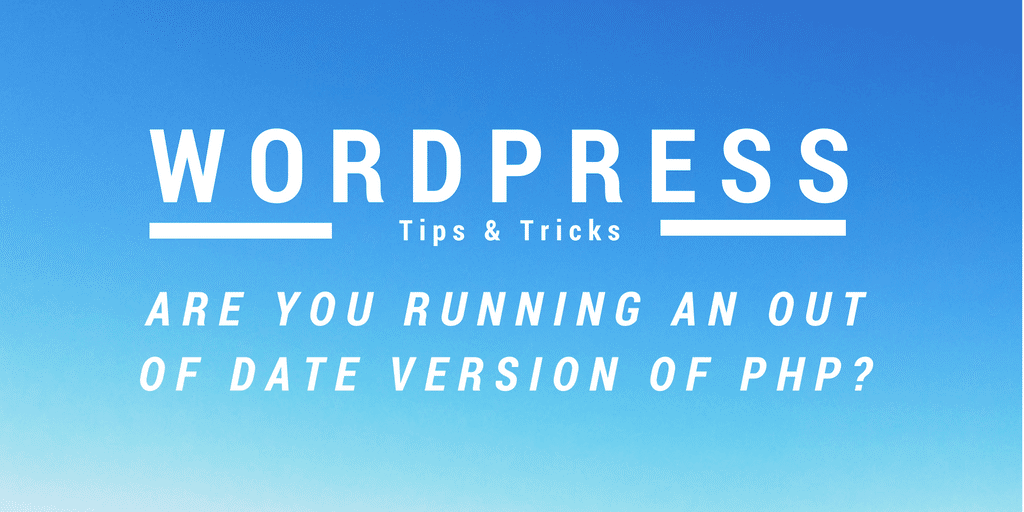PHP is the underlying code that runs WordPress. Regular visitors to our site will know that we constantly hark on about keeping WordPress up to date. The same can be said for any component on your hosting platform, the version of Apache, Nginx, MySQL and PHP all need to be kept up to date.
Do you know what the latest version of PHP is? It is version 7. 09 (released on 21st July 2016). However PHP version 5.5.x is the most common version of PHP in use on the web today. Released in 20th June 2013 it is now over 3 years old. The last version of PHP 5.5.37 was released 23rd June 2016 and that will be the last update. There will no longer be support for any 5.5.x version and more importantly no security issues will be fixed. If your site is fully up to date but still running PHP 5.5 if may become the weak link in your security.
The image below shows PHP versions and when support and security fixes will run out.

As you can see all versions prior to 5.6 are now EOL (End Of Life), 5.6 will only be actively supported until the end of this year. We recommend that if you run WordPress you should be running on the latest version of PHP, version 7.09.
Most hosting companies will offer multiple versions of PHP, you usually need to select the version of PHP via your control panel. If your running your own server you may need to manually install the latest version of PHP.
You can check what version of PHP is running on your site:
- Copy the code below into a file called phpinfo.php
<?php // Show all PHP information phpinfo(); ?> - Upload the file to the root of your hosting space
- Go to http://yourdomain.tld/phpinfo.php, this page will show all the PHP settings, the bar along the top will display the version:

- Remember to delete this file once you have finished viewing the details, it details all the PHP settings and may give a hacker a way in.
RocketWP will always install and run WordPress on the latest version of PHP, we also upgrade the version of PHP as part of our maintenance plan and ensure that the latest version is always used. If you have any issues upgrading your version of PHP do not hesitate in contacting us, just click the button below:
Contact Us




